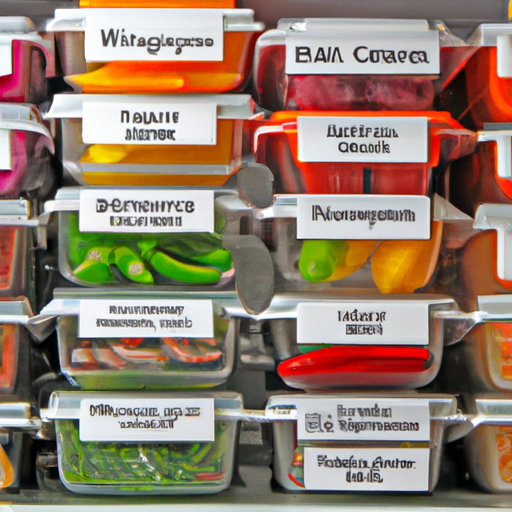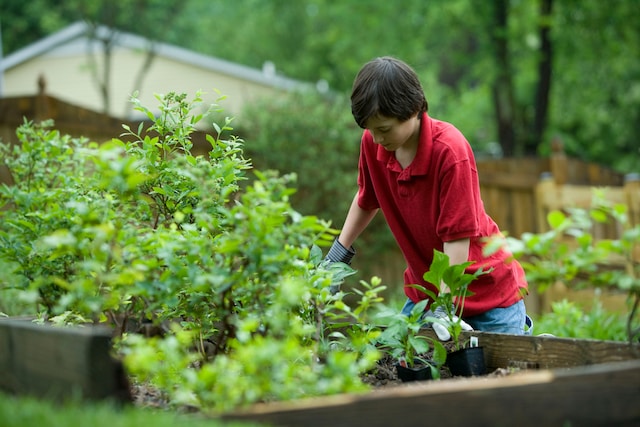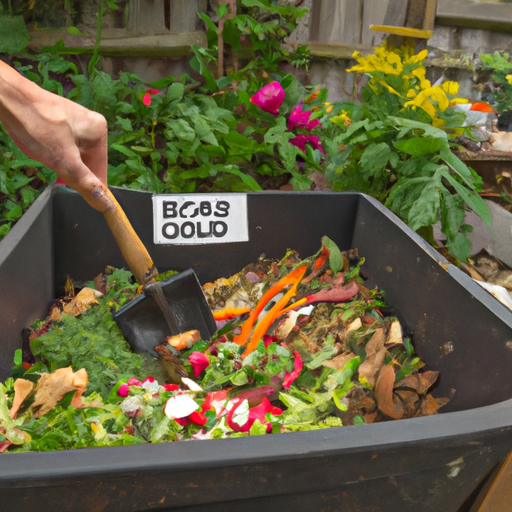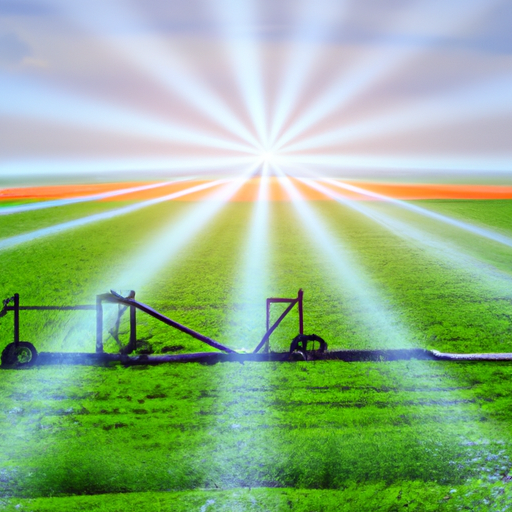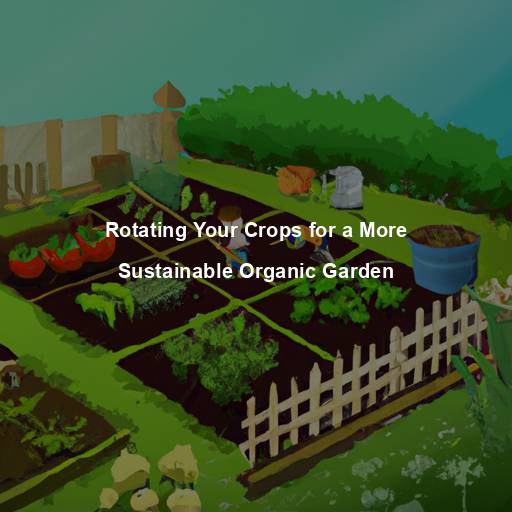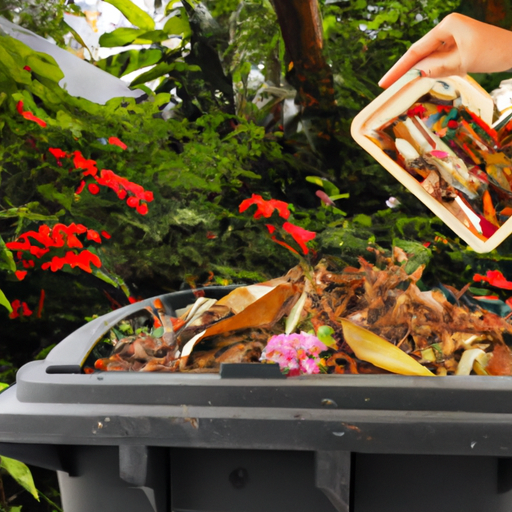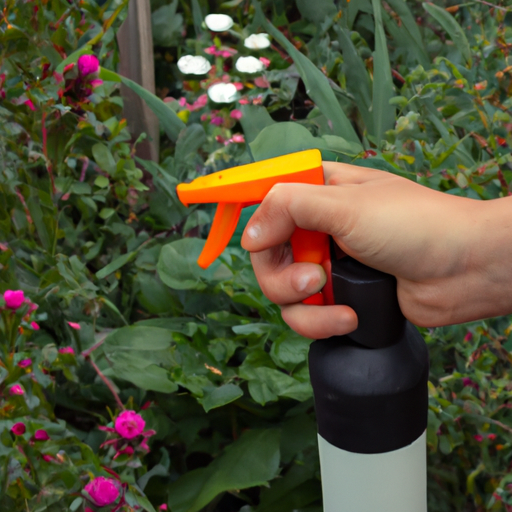If you’re a gardener, then you know the joy of harvesting fresh produce straight from your backyard. But what do you do with all that bounty when it starts to pile up?
One solution is freezing organic fruits and vegetables for later use. Not only does this method keep them fresh for longer periods, but it also locks in their nutrients and flavor.
As a Master Gardener, I have experimented with various methods of preserving my homegrown produce over the years. Freezing has always been one of my go-to techniques because it’s simple, convenient, and effective.
In this article, I’ll share my tips on how to freeze organic fruits and vegetables for maximum shelf life while maintaining their quality and taste. Whether you want to stockpile ingredients for winter soups or simply extend the lifespan of your garden harvest, this guide will help you master the art of freezing organic produce like a pro!
Choosing The Right Produce To Freeze
When it comes to freezing organic produce, selecting the right items can make all the difference. Differentiating between blanching and not blanching is crucial in determining which fruits and vegetables should be frozen.
Blanching involves briefly cooking produce in boiling water before plunging them into ice-cold water to stop the cooking process. This method helps preserve color, flavor, and texture while reducing enzyme activity that causes spoilage.
Some produce like berries, peaches, plums, apricots, cherries are better off not being blanched as they become mushy when thawed out. On the other hand, veggies like broccoli, carrots or cauliflower benefit from a quick blanch prior to freezing.
When selecting produce for freezing purposes, consider how you plan on using them later on. For instance, if you’re going to use your frozen tomatoes primarily for sauces or stews where texture isn’t critical then there’s no need for blanching but if you want to retain their shape and firmness for salads or sandwiches then go ahead with the blanching method.
Preparing Your Produce For Freezing
Now that you have selected your organic produce, it’s time to prepare them for freezing. The first step is blanching your vegetables before freezing them. Blanching helps preserve the color, texture, and flavor of the produce by stopping enzyme activity that can cause deterioration during storage.
To blanch, simply immerse the vegetables in boiling water for a few minutes before cooling them rapidly in ice-cold water. If you’re unsure about how long to blanch each vegetable, consult a trusted resource or reference guide.
After blanching, make sure to dry off excess moisture from your produce using paper towels or a clean cloth. This will help prevent ice crystals from forming on your food when frozen.
Next, choose proper containers for freezing – freezer bags, glass jars with tight-fitting lids, or plastic containers designed specifically for freezing are all good options. Make sure to label each container with the date and contents so you can keep track of what you freeze.
In addition to selecting appropriate containers and labeling them properly, there are some other tips to keep in mind when preparing your produce for freezing: remove as much air as possible from packaging; leave enough space at the top of containers to allow room for expansion as the contents freeze; and avoid overfilling containers which can lead to spillage or damage.
By following these simple steps and guidelines, you can ensure that your organic produce stays fresh and flavorful even after being frozen. With proper preparation techniques like blanching and careful selection of freezer-safe containers, you’ll be able to enjoy garden-fresh fruits and vegetables throughout the year without worrying about spoilage or waste.
The Best Methods For Freezing Organic Produce
Did you know that freezing organic produce can extend its shelf life up to 12 months? That means you can enjoy your favorite fruits and vegetables all year round, even when they’re out of season.
But not all freezing methods are created equal. To ensure the best quality and flavor, it’s important to use blanching techniques before freezing certain types of produce like broccoli, carrots, and green beans. Blanching helps to preserve their color, texture, and nutrient content.
Another tip is to choose freezer-friendly recipes that require minimal prep work or cooking time once thawed. This will save you time in the kitchen while still providing healthy and delicious meals for your family.
So next time you have an abundance of fresh organic produce on hand, consider freezing some for later use using these expert tips from a Master Gardener.
Storing Frozen Produce For Optimal Shelf Life
Now that you’ve successfully frozen your organic produce, it’s important to know how to store them for optimal shelf life.
When it comes to freezing techniques, always make sure to label and date your containers or bags before placing them in the freezer. This will help you keep track of their storage time and avoid any food waste. Additionally, consider using vacuum-sealed bags or airtight containers to prevent air exposure, which can cause freezer burn and affect the overall quality of your produce.
As for storage solutions, try organizing your frozen goods by category (e.g., fruits, vegetables, meats) so that they’re easier to find when needed. Remember not to overcrowd your freezer shelves as this may lead to temperature fluctuations and uneven cooling.
By following these tips, you’ll be able to enjoy your frozen organic produce at peak freshness for longer periods of time without sacrificing taste or nutrition.
Tips For Using Frozen Produce In Recipes
Just like how a painter mixes different colors and brushes to create an exquisite masterpiece, frozen produce can also be used creatively in recipes.
The possibilities are endless! Frozen berries can be blended into smoothies for breakfast, while frozen peas can make a delicious addition to soups or stews.
Not only do frozen fruits and vegetables provide convenience, they retain their nutritional benefits as well. In fact, studies have shown that some types of produce may even increase in nutrient value when frozen at the peak of freshness.
So don’t hesitate to experiment with your favorite frozen ingredients – who knows what culinary masterpieces you might discover?
Frequently Asked Questions
Can You Freeze Organic Produce That Has Already Been Cooked?
Yes, you can definitely freeze organic produce that has already been cooked. However, it’s essential to keep in mind that freezing may affect the flavor and texture of your food items slightly.
To ensure maximum flavor retention in frozen organic produce, make sure to cook them until just done or still a little bit undercooked before freezing. This will help preserve their taste as much as possible.
Additionally, try not to overcook vegetables like broccoli and carrots since they might become mushy after thawing. Overall, whether fresh or cooked, properly storing organic produce is crucial for maintaining its quality and nutritional value.
How Long Can Frozen Organic Produce Be Stored Before It Loses Its Nutritional Value?
When it comes to frozen organic produce, many people are concerned about its nutrient retention. It’s a common misconception that frozen fruits and vegetables lose their nutritional value over time. However, studies have shown that in most cases, the difference in nutrient content between fresh and frozen organic produce is negligible.
In fact, freezing can actually help preserve the nutrients in certain types of produce by preventing oxidation and degradation. Of course, it’s important to store your frozen organic produce properly to maintain its quality over time.
So if you’re looking for an easy way to enjoy healthy fruits and veggies year-round, don’t be afraid to stock up on some high-quality frozen options!
Can You Re-Freeze Organic Produce After It Has Been Thawed?
Can you re-freeze organic produce after it has been thawed? It’s a common question for those who want to save money and reduce food waste.
However, re-freezing precautions should always be taken into consideration. When defrosting frozen organic produce, make sure to do so in the refrigerator or under cold water instead of leaving it at room temperature where bacteria can grow rapidly.
Once fully thawed, use the produce within two days, or else freeze it again immediately. But remember that each time you refreeze something, its texture and flavor may change slightly.
So if possible, try to only freeze what you’ll need in one go.
Are There Any Organic Fruits Or Vegetables That Should Not Be Frozen?
When it comes to frozen organic produce, there are a few exceptions and recommendations to keep in mind.
Some fruits and vegetables don’t fare well when frozen, such as lettuce or cucumbers which can become mushy once thawed.
However, many other items like berries, broccoli, and carrots freeze quite nicely.
To preserve the texture and flavor of your organic produce while freezing, be sure to blanch them first before placing them in the freezer.
This will help retain their color and nutrients for longer periods of time.
As a Master Gardener, I highly recommend experimenting with different types of produce to find what works best for you!
Does The Type Of Freezer Used Affect The Quality Of The Frozen Organic Produce?
When it comes to freezing organic produce, the type of freezer used can definitely have an impact on the quality of the frozen goods.
Upright freezers are known for their convenience and easy access, but they tend to cause more temperature fluctuations which can result in a lower quality freeze.
On the other hand, chest freezers provide consistent temperatures and better insulation, leading to higher quality frozen produce.
It’s important to keep in mind that regardless of the type of freezer you use, maintaining a consistent temperature is key for preserving the flavor and texture of your organic fruits and vegetables.
Conclusion
In the world of organic gardening, there is an art to freezing produce for maximum shelf life. It’s not just about putting food in a freezer bag and hoping for the best.
To get the most out of your organic fruits and vegetables, you need to know how long they can be stored before losing their nutritional value, if you can re-freeze them after thawing, and which ones should not be frozen at all.
When it comes down to it, the type of freezer used does affect the quality of the frozen organic produce. A high-quality freezer will keep produce fresher longer than a run-of-the-mill model. But no matter what kind of freezer you have, proper storage techniques are essential for getting the most out of your frozen produce.
As Master Gardeners, we understand that preserving our hard-earned harvest is one of the keys to success in organic gardening. By learning the art of freezing organic produce, we can extend its shelf life and enjoy fresh flavors even when our gardens are barren.
Whether it’s freezing cooked veggies or knowing which fruits shouldn’t be frozen at all, taking care with our preservation methods shows respect for nature’s bounty and helps us live more sustainably overall.
